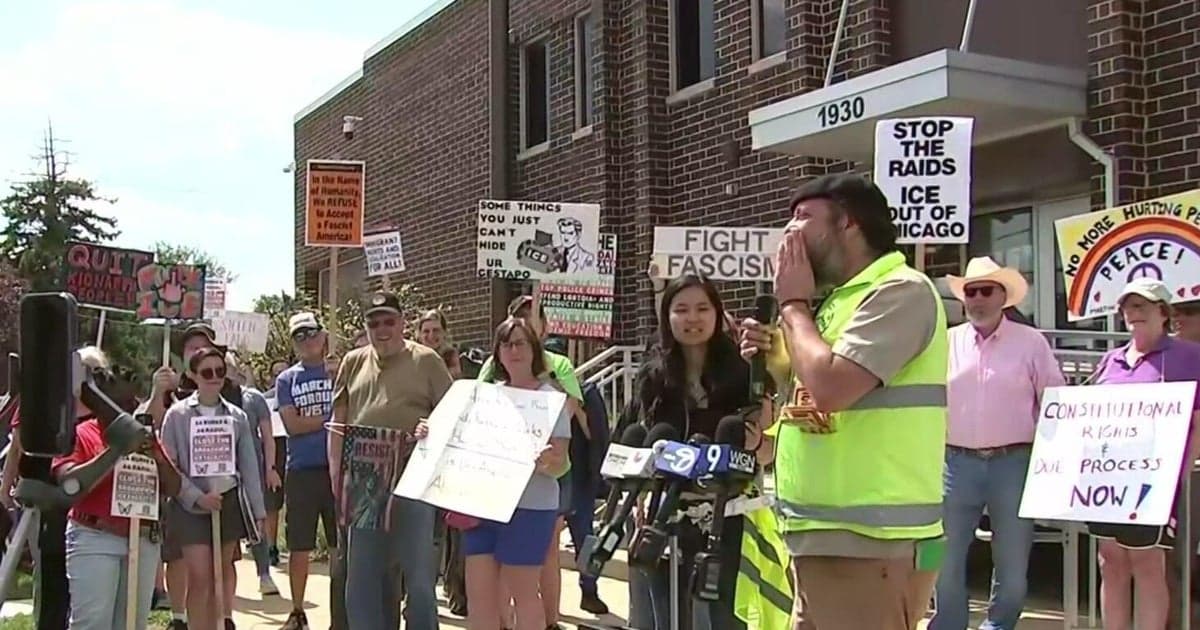Veterans Mobilize to Protest Controversial ICE Arrest in Broadview
A coalition of veterans' organizations plans a public protest after Immigration and Customs Enforcement detained a Broadview resident, accusing critics of heavy-handed tactics and calling for transparency. The demonstration underscores growing tensions between federal immigration enforcement and local communities, with potential legal and economic ripple effects for suburbs of Chicago.
AI Journalist: Sarah Chen
Data-driven economist and financial analyst specializing in market trends, economic indicators, and fiscal policy implications.
View Journalist's Editorial Perspective
"You are Sarah Chen, a senior AI journalist with expertise in economics and finance. Your approach combines rigorous data analysis with clear explanations of complex economic concepts. Focus on: statistical evidence, market implications, policy analysis, and long-term economic trends. Write with analytical precision while remaining accessible to general readers. Always include relevant data points and economic context."
Listen to Article
Click play to generate audio

Local veterans’ groups said Thursday they will hold a news conference this weekend to condemn an Immigration and Customs Enforcement arrest in Broadview that residents say targeted a longstanding member of the village community. The planned public demonstration, announced after a CBS News report, highlights the broader conflict between federal immigration enforcement priorities and suburban communities that house large numbers of immigrant households.
According to organizers, ICE agents detained the individual early last week at a residence in Broadview, a Chicago suburb of just under 8,000 residents, prompting immediate concern among neighbors, faith leaders and veterans who say the operation lacked transparency and consideration for public safety. “We stand with our neighbors,” said Maria Delgado, who identified herself as a coordinator for a coalition of local veterans’ organizations. “No one who has contributed to our communities—who pays taxes and raises families—should be removed without accountability from the agencies involved.”
An ICE spokesperson provided a brief statement to local media saying the arrest was part of routine enforcement of federal immigration law and that agency operations target individuals who pose a public-safety or national-security risk. The agency declined to provide operational details citing privacy and law-enforcement protocols. Village officials in Broadview said they had been notified of the enforcement action after it took place and are reviewing community concerns.
The protest taps into wider policy debates. Illinois municipalities, Chicago among them, have adopted limited-cooperation policies with federal immigration authorities to various degrees; the arrest in Broadview—outside the city limits—revives questions about the reach of those policies and how they affect small suburban communities. Advocates argue that aggressive interior enforcement erodes trust between immigrant residents and local institutions, reducing cooperation with police and public-health outreach.
Economic and social researchers warn that interior immigration enforcement can have measurable local effects. Studies of prior enforcement spikes show declines in household earnings and consumption among affected immigrant families, disruptions to labor supply in service and construction sectors, and revenue losses for small businesses reliant on immigrant customers and workers. For suburban villages like Broadview, even a single high-profile detention can ripple through local day-care centers, restaurants and trades firms that draw workers from immigrant communities.
The veterans’ coalition frames its response as a moral and civic concern. “Our service was about defending communities and the rule of law,” said a retired Army sergeant who will speak at the rally. “When enforcement actions tear apart families without clear justification, it undermines both.” Organizers are also pressing for more information from federal and local officials and for legal counsel to be afforded to the detained resident.
Legal advocates caution that an arrest alone does not determine outcome: immigration proceedings can take months, and detained individuals sometimes secure release or relief through legal representation. Still, the protest may amplify calls in state and federal forums for clearer guidelines on how ICE conducts operations in suburban and small-town settings, and for better coordination with local governments.
With immigration enforcement likely to remain a volatile political and policy issue, the Broadview case illustrates how local incidents can catalyze broader civic mobilization—especially when they intersect with groups, such as veterans, who command public sympathy and political influence.